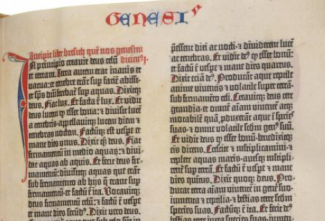Much could be written on the subject of lost Bible books. There are valid reasons why certain writings, though supported by some, are not inspired by God, and therefore are rightfully not included in our modern translations. Usually the reason for rejection is that such lost books contradict clear Biblical facts or doctrinally sound teachings confirmed by Scripture known to be inspired.
St. Thomas' Gospel
St. Thomas' gospel teaches things that are contrary to the sound doctrines of the Bible. It teaches that God had two distinct creations of man, one that was a bit flawed, and the other that was perfect.
The "lost gospel" of Thomas also promotes the idea that people can acquire the "image of God." Scholars view this spurious writing with skepticism. There exists only a small cultic following that thinks it portrays the 'real Jesus' better than the portrayal offered in Scripture.

The Apocrypha
Many of the larger and more expensive Bible translations contain a section with the Apocrypha. These are writings that some in the past thought should have been included in the canon but were excluded. Many of them will have their history in their introductory remarks. Volumes printed by Catholic-centered publishers are often the most comprehensive in this area.
Several reference works offer information regarding why certain writings were excluded from scripture, the discovery dates of the writings and so on. . One of these is entitled "Lost Books of the Bible" by Solomon J. Schepps and William Hone. Another book is "The Forgotten Books of Eden" by Rutherford Platt. It is an anthology of ancient, apocryphal writings. Together, these works discuss the lost writings below that various people argue should become part of holy writ.
False Claims
Several "lost" Bible books claim to be the Gospel of the Birth of Mary, the infancy of Jesus Christ, Nicodemus (Acts of Pilate) and Peter's lost gospel. Additionally, there are writing that claim to be the Epistle of Jesus Christ and Abgarus King of Edessa, Paul the Apostle to the Laodiceans, Paul the Apostle to Seneca, Barnabas, Polycarp to the Philippians, and Clement.
There also exists an epistle purported to be written by Ignatius to the Ephesians, as well as epistles written for the Magnesians, Romans, Smyrneans, Trallians and Philadelphians.
Several lost letters also claim inspiration such as one from Herod to Pilate the Governor and another from Pilate to Herod. Still other writings thought by some to be inspired include those purported from Adam, the Odes, and the Psalms of Solomon, the testaments of the twelve Patriarchs, and the secrets of Enoch.
A search of the Internet or your local public library may well show these volumes on hand or available as well as quite a few others that will help you find the answers to your questions.
After some forty years of researching the subject and reading most of the lost books of the Bible and the apocryphal writings, a simple in-depth reading of such material will usually produce obvious reasons why they are excluded from Biblical canon.